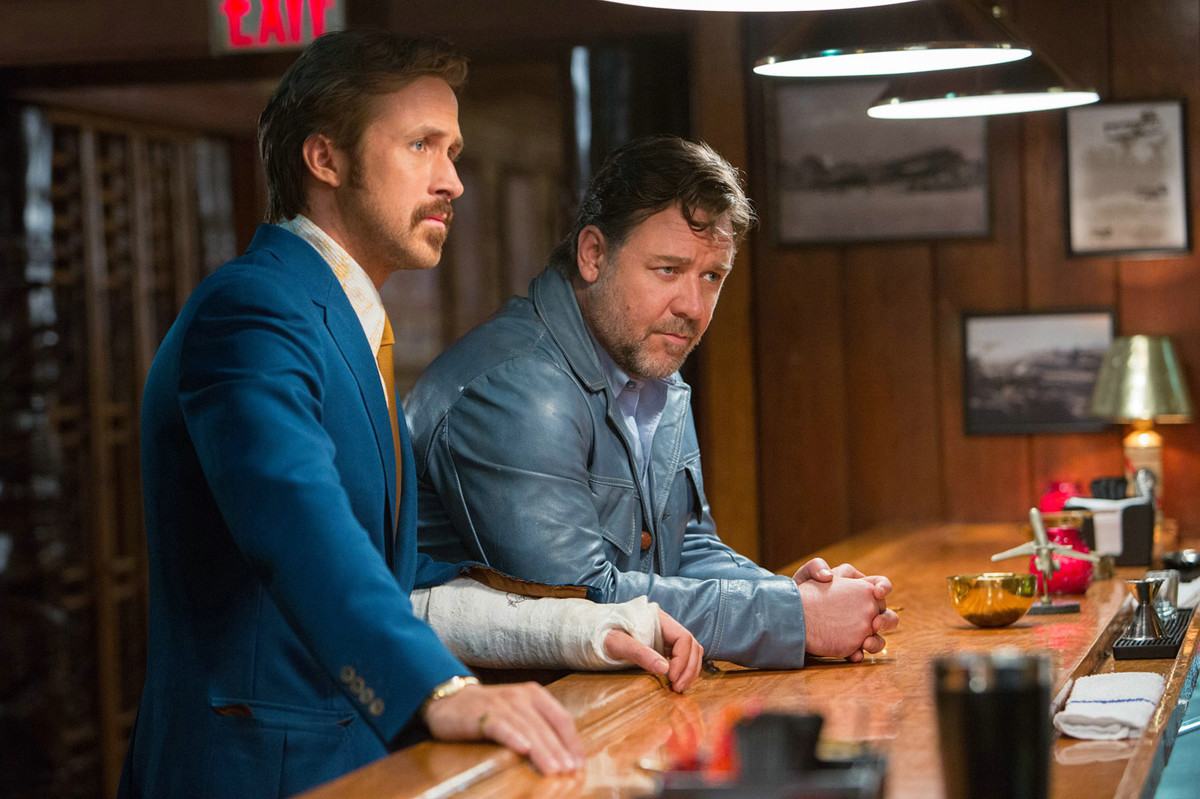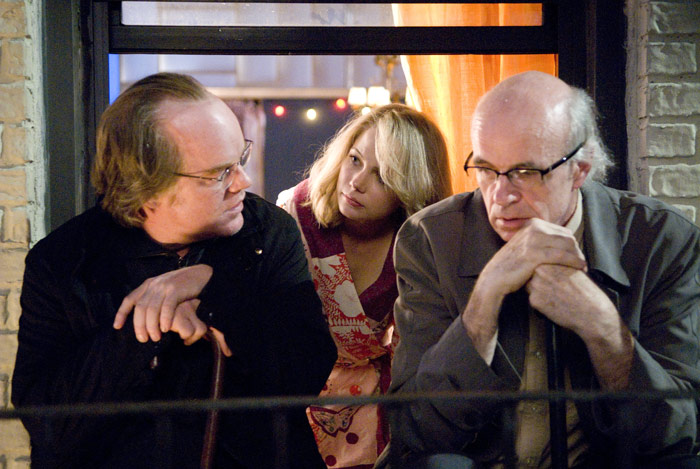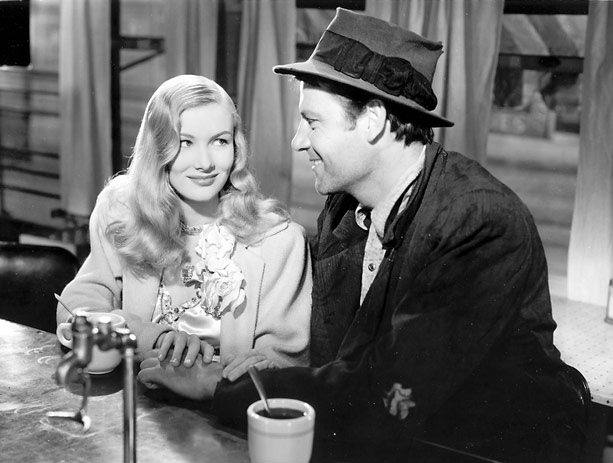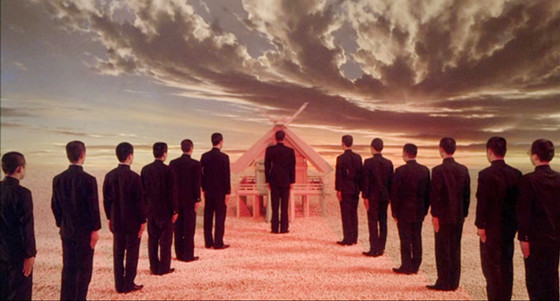5. The Nice Guys (2016, Shane Black)

Shane Black was one of the first screenwriters of the ‘screenwriter superstar wave’ that took over Hollywood, perhaps the best time ever to be a writer in the industry. It was a time when they could sell original scripts for six-figure deals and their name alone was sometimes enough to draw an audience. Black, with his recognisable and popular style, was one such case – and though directed by such different filmmakers as Richard Donner and Tony Scott, both “Lethal Weapon” and “The Last Boy Scout” are distinctly marked by Black’s voice.
That strength of style carried over to his directing career, starting with his wonderful debut “Kiss Kiss Bang Bang,” a hugely (and rightfully) beloved movie that, nevertheless, pales in comparison to it’s spiritual successor, “The Nice Guys.” A buddy cop story, like most Shane Black movies (though neither of the main characters, technically, are actual cops), it follows the begrudging partnership between a fixer (Russell Crowe) and a private detective (Ryan Gosling) hired to find a missing girl (Margaret Qualley).
“The Nice Guys” features all the trademarks that made Black’s movies: the hardboiled and purposefully convoluted plotting; the witty, verbose dialogue; and the centering of the friendship of its main characters. What makes this movie in particular stand apart from the rest is not so much that it has any distinguishing qualities – it’s just the absolute perfection of the Black formula, and every single one of his quirks works marvelously here. As both a directing and writing statement, this is his signature work.
4. Synecdoche, New York (2008, Charlie Kaufman)

It was only a matter of time before Charlie Kaufman became a director. It’s the kind of inevitability that one of his characters might dread and complain about in a movie. The reason for this is that Kaufman has one of most prodigiously gifted imaginations of any screenwriter ever, and however lucky he may have been finding directors with similar sensibilities, like Spike Jonze and Michel Gondry, his material is so wildly idiosyncratic and his own that only the man himself could fully realize it.
And that’s exactly what happened in “Synecdoche, New York,” a film so overflowing with ideas and conceptual bravado that it would have been utterly impossible for anyone but Kaufman to even begin to understand its layers enough to properly direct them. It’s almost irrelevant to summarize the plot, since the movie twists itself in and out constantly, rearranging our understanding of the very nature of the film enough times to give you a headache.
It begins as a comically melancholic drama about a depressed theater director attempting to stage a new play, but quickly turns a surreal and existential trip through Kaufman’s subconscious, troubled as it is by matters of mortality, time and artistic expression. It’s, of course, purposefully beguiling and often inscrutable, but not entirely inaccessible, since Kaufman is never anything less than entertaining, alternating seamlessly between funny and heartfelt.
He has since directed two other very good movies, but neither of them can rival the sheer ambition and bravado of “Synecdoche, New York.”
3. A Letter to Three Wives (1949, Joseph L. Mankiewicz)

For anyone familiar with Joseph L. Mankiewicz’s enviable career as a director, there must be two questions going through their minds right now. First: “Wait, isn’t he a bonafide director, not a screenwriter?”; and second: “How can you pick a Mankiewicz and it’s not ‘All About Eve’?!”. As to the first: his subsequent career as a director has somewhat shadowed the fact that the four-time Oscar winner began as a prolific writer of mostly uneventful comedies and musicals in the 1930s before turning to directing. And about the second: well, yes, “All About Eve” is a masterpiece, but it’s also one of the most talked about movies of all time, so why not enjoy the opportunity to shine a light on one of his lesser-seen gems?
It’s actually strange to describe “A Letter to Three Wives” as underrated, since it won two major Academy Awards: Best Director and Best Screenplay (both for Mankiewicz himself). But time has diluted the movie’s importance in cinema history and though it’s by no means a seminal film from the Golden Age of the studio system, it’s nevertheless a very well realized movie that merits the recognition it got at the time.
The premise by itself is already excellent: three friends receive a letter from their frenemy Addie Ross, the town’s most sophisticated and popular woman. In it, Addie claims she has run away with one of their husbands, but doesn’t say who. And, during the course of the movie, each of the women flashback to their marriages to analyse if their husband could be the one – and how they’d feel if he was.
It’s a fairly simple structure that serves as foil for Mankiewicz to display his gift for writing female characters and turning glossy, potentially alienating material into a drily funny and quietly moving drama.
2. Sullivan’s Travels (1941, Preston Sturges)

Another filmmaker who has gone in history as a proper director instead of just a writer who gets behind the camera sometimes, Preston Sturges had a long and successful career as a screenwriter of comedies. But he found himself increasingly frustrated with directors botching up his vision and so he demanded that he be the one to direct his script for “The Great McGinty.” The movie was an absolute hit, even winning Sturges an Oscar, and from then he became one the industries very greatest screwball directors.
His oeuvre is made up of basically nothing but classic comedies, so it’s an arduous task to pick just one, but “Sullivan’s Travels” might just be the best. The story centers on a Hollywood director who becomes frustrated with the fakeness of the industry and so sets out to live as a poor man to gather genuine experience for his new movie. Things quickly get out of hand, however, as his little experience has dire consequences he couldn’t have anticipated.
Though it’s a Hollywood satire of sorts, this movie is the absolute antithesis of something like the previously mentioned “State and Main”: whereas Mamet views Hollywood very cynically, Sturges finds unironic beauty in the power of cinema and the ability it has to transport people and save them from reality for a few hours – something he illustrates beautifully in a scene in which inmates in a prison escape their circumstances by delighting with a Disney animated short.
1. Mishima: A Life in Four Chapters (1985, Paul Schrader)

Unlike almost all other filmmakers in this list, who are primarily known for one thing or the other, Paul Schrader’s two frequently intertwined but essentially separate careers, as a writer and a director, are both iconic to American cinema in their own way. His iconic collaborations with Martin Scorsese may be for what he’s remembered the most, but his own forays into directing have produced seminal pieces of cinema, from his debut “Blue Collar” to the recent masterpiece “First Reformed.”
Nevertheless, there’s nothing in Schrader’s enviable oeuvre that even comes close to the excellence of “Mishima – A Life In Four Chapters.” Nominally a biopic of Japanese novelist Yukio Mishima, the movie is actually a daringly experimental piece of storytelling: Paul Schrader (and his brother Leonard) structures the movie around the last day of the writer’s life, when he and a militia invaded a military base.
It flashes back to his earlier life to explain how he got to that point, but also (and this is where the movie truly breaks with all biopic cliches and expectations) intercuts the narrative with dramatized interludes of some of his most important literary work, providing true insight on both of the man and the artist and how those two disparate facets of Mishima informed and influenced one another.
As the movies cited on this list (among many others) prove, it’s perfectly possible for a screenwriter to become a director and make an interesting movie. However, it’s the rarest of things for someone accustomed to the craft of words to be able to conjure a purely cinematic vision, to create purely cinematic images. That’s not the case with Schrader, most of all this movie: it’s no hyperbole to say that this is one of the most visually striking films ever made. Schrader, as a director, has complete dominium of every aspect of the visual side of filmmaking: rarely has the use of color, lighting, composition and design married so perfectly as they do in here.
The brilliance of “Mishima” can rival anything Schrader’s more acclaimed peers have created – and in a fair world, this movie would have its place in “Greatest of All Time” lists guaranteed.